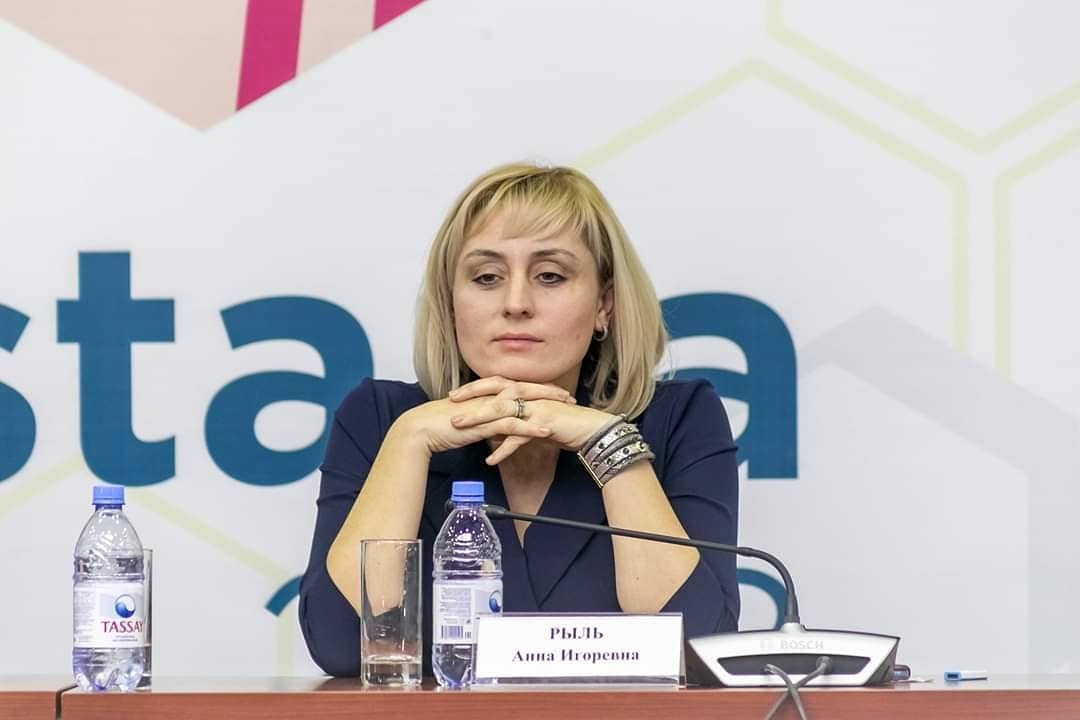Anna Ryl, Korgau-Astana foundation manager, talks about migrants’ life in Kazakhstan
After Russia, Kazakhstan is the second leading country in the Eastern Europe and Central Asia (EECA) region by the number of migrants entering the country. Mainly, they arrive to Kazakhstan from Uzbekistan, Tajikistan, Kyrgyzstan, Turkmenistan, as well as China and Turkey.
For 15 years, Korgau-Astana foundation in Kazakhstan has been helping people in difficult circumstances, including victims of domestic violence, human trafficking, and undocumented migrants. The foundation provides legal, medical, and psychological help. While in rehabilitation, people can temporarily stay at the center. Most challenges migrants encounter are related to abusive labor; when a person is dependent and vulnerable, but from the legal point of view, the situation does not correspond to labor exploitation.
- Anna, how many migrants are served by your organization annually?
This number varies by year. When we started the foundation, more than 70% of human trafficking victims were migrants. But not all migrants who are in difficult situations are victims of labor violations. There are also people who have been living undocumented for years.
In 2019, 181 people obtained documents with our help. In 2020, 650 people came to us, but only 80 succeeded to legalize their status because requests were managed slowly due to the lockdown.
— Can you highlight risk-groups among migrants?
The first most vulnerable group are 15- to 25-year-old women. Most often, these girls are propelled into exploitation, labor or sexual, which leads to their breakdown. Female migrants are often exposed to violence, as men understand their vulnerability and take their aggression out on women. The second risk group are 40- to 60-year-old men who suffer labor exploitation or similar situations. Due to hard physical work, lack of medical care and basic amenities, as well as malnutrition, their return to normal life takes much time and resources.
- What is the main problem for migrants in Kazakhstan?
The main problem for migrants is of course the registration and obtaining a legal status. otherwise, it is impossible to find official work, register in the place of living, get medical services.
- Is the registering process different for internal and external migrants in Kazakhstan?
Registration is similar for all migrant groups, but the paperwork for a foreign citizen takes longer.
We provide short-term registration for migrants: people from the tuberculosis clinic need it to get medical help; convicted people, to recover their documents; female victims of domestic violence, to receive social support. We are talking about 400 to 600 persons per year. When documents issues are solved, people can get registration at a permanent place of residence by themselves.
- Do migrants have access to healthcare?
For migrants, access to healthcare is very limited. They can only get emergency care. Even for our citizens, it is difficult to be treated in a place different from the area of registration.
- How has the coronavirus pandemic affected the situation?
The coronavirus pandemic and related limitations have highlighted migrants’ issues. When the number of migrants at farms, cafes and carwashes decreased, these jobs were offered to local population. Locals encounter the same problems as migrants: unscrupulous employers do not sign contracts, accuse employees in case of force majeure situations, delay payments, and manipulate employees. We started to discover more people suffering from situations similar to labor exploitation. Also, at the beginning of the lockdown, migrants were unable to return home due to closed borders and had to wait.
- What can the government do? And what should it do?
The fight against COVID-19 started a year ago, and the amount of migrants’ troubles is not decreasing. I believe, the government should plan the budget taking into account needs of such organizations as our foundation.
There is no governmental support, and no funding for migrants in difficult circumstances. There is just some help from international donors. At the same time, international missions in Kazakhstan are being reduced because they consider us a relatively favorable country able to solve such challenges on its own.
There are no organizations, except ours, which constantly help people to obtain documents. Such organizations should exist, because migrants and victims of multiple kinds of violence are often the same people. They cannot go through the paperwork without help. They need to be accompanied from start to finish.
- Who provide you support? Are there local migrant-friendly organizations?
In the last 2 to 3 years, migration services in Kazakhstan have started to do their job better: it is now possible to obtain work permit. The number of undocumented migrants is falling due to some work done at the border. In the capital, the police and migration service are helping us. If they find an undocumented person, they bring them to us.
Regarding the migrant-friendly organizations, there is a chain of crisis centers distributed through Kazakhstan.
Phone number — 8 (7172) 30-60-73 (in Kazakhstan), short number 1409 — support in domestic conflicts.
Nadezhda Rogozina
This article was prepared with the support of Oxfam in the Russian Federation
